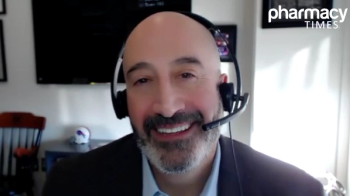
- December 2016 Heart Health
- Volume 82
- Issue 12
Pediatric Cardiovascular Conditions
Cardiovascular health in pediatric patients remains a topic that requires continual education.
Cardiovascular health in pediatric patients remains a topic that requires continual education. For example, the fourth report published in 2004 identifies the diagnosis, treatment, and management of hypertension in children and adolescents (Figure).1 Additionally, with the increased incidence of children on amphetamine-type products for attention-deficit/hyperactivity disorder (ADHD), several studies have stated that amphetamine-type products demonstrate adverse cardiovascular events. Lastly, although the incidence of congenital heart defects remains low, several medications may increase the risk of these defects, such as septal defects in the atrium or ventricle, as well as right ventricular outflow tract obstruction (RVOTO). This article discusses proper treatment options for pediatric hypertension based on the results of clinical studies, examines the evidence regarding adverse cardiovascular events in amphetamine-type products, and identifies the medications known to exert cardiovascular teratogenic events.
PEDIATRIC HYPERTENSION
The prevalence of pediatric hypertension ranges between 3.2% and 4.5%.2-4 Among all known risk factors for hypertension, obesity is a primary risk factor, as studies identify a significant correlation between increasing body mass index and the incidence of patients with blood pressure (BP) >95th percentile.5,6 If hypertension remains poorly controlled in children and adolescents, the projected incidence of adult hypertension in affected children will increase.
One study found that the odds of developing hypertension at age 30 and older for 5- to 18-year-old girls and 5- to 12-year-old boys, with mean systolic blood pressure (SBP) at any examination within an age interval that exceeded age- and gender-specific criterion values, were 3 to 4 times greater than those for girls and boys in the same age intervals whose BP measurements never exceeded these criterion values.7 Along with recommending weight reduction and lifestyle changes, the FDA approved several medications for pediatric hypertension, as well as rejected approval of several antihypertensives (Table).8-12
Angiotensin-Converting Enzyme Inhibitors
Along with treating childhood hypertension, angiotensin-converting enzyme inhibitors also reduce cardiovascular and renal effects and have demonstrated clinical efficacy in children with chronic kidney disease and proteinuria. Enalapril was the first FDA-approved pediatric antihyper- tensive in 2001, which was validated in a 2-phase randomized trial that demonstrated reduced BP for patients <50 kg and >50 kg who received enal- april 2.5 mg and 5 mg, respectively (mean dose, 0.08 mg/kg).13 In 2003, lisinopril and fosinopril were FDA-approved based on study results that validated their clinical efficacy in children with hypertension,14-16 with benazepril receiving its approval for pediatric hypertension in 2004.17
Angiotensin-Receptor Blockers
In clinical trials evaluating angiotensin-receptor blockers (ARBs), pediatric patients tolerated ARBs well, with the most frequently reported adverse effects being dizziness and headache. Because losartan demonstrated a dose-response reduction, as well as superiority to placebo and amlodipine, losartan was the first FDA-approved ARB for pediatric hypertension in 2004.18,19 Similarly, the FDA approved valsartan for pediatric hypertension in 2007 after it demonstrated a dose-response reduction in SBP and diastolic blood pressure (DBP) in children 6 to 17 years of age.20 In 2009, the FDA approved 2 additional ARBs, candesartan and olmesartan, for pediatric hypertension due to their documented dose-response reductions in SBP and DBP, respectively.21,22
Beta-Blockers
Metoprolol is currently the only FDA-approved beta-blocker for use in pediatric hypertension. Metoprolol significantly reduced SBP compared with placebo, but with no dose-response effect. Only high doses of extended-release metoprolol (2 mg/kg) demonstrated significant reductions in DBP compared with placebo.23
Calcium Channel Blockers
The FDA approved amlodipine in 2004, as it demonstrated a dose-response reduction in SBP and DBP. Systolic blood pressure reduction was slightly greater in females compared with males.24,25
Role of the Pharmacist in Pediatric Hypertension
Pharmacists can collaborate with other clinicians to customize therapeutic lifestyle changes for patients, such as diet modification and physical activity.1 As in adults, pediatric patients with hypertension benefit from diets that restrict sodium intake and increase the consumption of fruits, vegetables, and fiber. Pharma- cists can also provide weight management services and comorbidity management to pediatric patients. These patients and/or their caregivers should monitor the amount of time spent sitting around and engage their children in 30 to 60 minutes of physical activity per day. Pharmacists can help patients to comply with their prescribed therapy, monitor their BP, and improve their outcomes. Pharmacists can consider compounding antihypertensives to change the dosage form or add flavor to improve medication adherence.
CARDIOVASCULAR EFFECTS OF STIMULANT MEDICATIONS
Stimulant medications used to treat ADHD (eg, Ritalin, Concerta, Focalin, Vyvanse) previously included warnings about serious cardiovascular risks, which resulted in the FDA mandating manufacturers include medication guides that alerted patients to the cardiovascular risks.26 As researchers conducted additional studies in pediatric patients, however, the results conflicted with the information in the medication guides. For example, few studies highlighted that ADHD medication was not significantly associated with increased risk of sudden death or ventricular arrhythmia, or all-cause mortality.27-29 Additionally, pediatric patients currently taking stimulants were not at an increased risk of cardiovascular events compared with previous stimulant use and no stimulant use.27,30 Although the evidence remains conflicting, pharmacists should still monitor cardiovascular function in pediatric patients on stimulant therapy and closely work with their physicians to make necessary changes.
TERATOGENS AND CONGENITAL HEART DEFECTS
Among teratogenic medications, isotretinoin and selective serotonin reuptake inhibitors (SSRIs) have been documented to increase the risk of congenital heart defects in unborn children. Isotretinoin causes a plethora of birth defects, including cardiovascular abnormalities. To prevent fetal exposure to isotretinoin, the iPLEDGE program restricts distribution of all isotretinoin products.31
There are conflicting data regarding a relationship between ma- ternal SSRI use and congenital heart defects in children. Although data from the National Birth Defects Prevention Study show no significant associations between maternal SSRI use and congenital heart defects,32 other studies highlight cases in which several SSRIs used during pregnancy cause congenital heart defects in a fetus. For example, studies associated an increased risk of congenital heart defects, such as atrial septal defect and RVOTO, with paroxetine use during the first trimester of pregnancy.33-36 Due to these increased risks, paroxetine is classified as a Pregnancy Category D medication. Although fluoxetine is classified as a Pregnancy Category C medication, its use has been associated with ventricular septal defects and RVOTO.35 Lastly, a population-based cohort study spanning from 1998 to 2010 found that maternal sertraline was associated with an increased risk for atrial/ventricular defects (risk ratio, 1.34; 95% CI, 1.02-1.76).37
Brian J. Catton, PharmD, graduated from the Bernard J. Dunn School of Pharmacy at Shenandoah University in Winchester, Virginia, in 2010. He received the Distinguished Young Pharmacist Award from the New Jersey Pharmacists Association in 2014. He currently is a Pharmacist Communicator at Ashfield Healthcare in Ivyland, Pennsylvania. His areas of interest include pediatrics, immunizations, drug-therapy management, social media, patient counseling, and immuno-oncology.
References:
- National High Blood Pressure Education Program Working Group on High Blood Pressure in Children and Adolescents. The Fourth Report on the Diagnosis, Evaluation, and Treatment of High Blood Pressure in Children and Adolescents. Revised May 2005.
- Sorof JM, Lai D, Turner J, Poffenbarger T, Portman RJ. Overweight, ethnicity, and the prevalence of hypertension in school-aged children. Pediatrics. 2004;113(3 pt 1):475—482
- McNiece KL, Poffenbarger TS, Turner JL, et al. Prevalence of hypertension and pre-hypertension among adolescents. J Pediatr. 2007;150(6):640-644.
- Hansen ML, Gunn PW, Kaelber DC. Underdiagnosis of Hypertension in Children and Adolescents. JAMA. 2007;298(8):874-879.
- Ogden CL, Carroll MD, Curtin LR, McDowell MA, Tabak CJ, Flegal KM. Prevalence of overweight and obesity in the United States, 1999-2004. JAMA. 2006;295(13): 1549—1555
- Lo JC, Sinaiko A, Chandra M, et al. Prehypertension and hypertension in community-based pediatric practice. Pediatrics 2013;131:e415—e424.
- Sun SS, Grave GD, Siervogel RM, et al. Systolic blood pressure in childhood predicts hypertension and metabolic syndrome later in life. Pediatrics. 2007; 119(2):237-46.
- Chu PY, Campbell MJ, Miller SG, Hill KD. Anti-hypertensive drugs in children and adolescents. World J Cardiol. 2014; 6(5): 234—244.
- Karkowsky A. Clinical review for Avapro® (irbesartan) tablets for pediatric hypertension. Accessed October 3, 2016, from http://www.fda.gov/ohrms/dockets/ac/06/briefing/2006-4210b_03_03_IrbesartanClinicalSummary.pdf.
- Trachtman H, Frank R, Mahan JD, et al. Clinical trial of extended-release felodipine in pediatric essential hypertension. Pediatr Nephrol. 2003; 18: 548-553.
- Flynn JT, Pasko DA. Calcium channel blockers: pharmacology and place in therapy of pediatric hypertension. Pediatr Nephrol. 2000; 15:302—316.
- Sorof JM, Cargo P, Graepel J, et al. Beta-blocker/thiazide combination for treatment of hypertensive children: a randomized double-blind, placebo-controlled trial. Pediatr Nephrol. 2002; 17: 345-350.
- Wells T, Frame V, Soffer B, et al. A double-blind, placebo-controlled, dose response study of the effectiveness and safety of enalapril for children with hypertension. J Clin Pharmacol. 2002; 42: 870-880.
- Li JS, Berezny K, Kilaru R, Hazan L, et al. Is the extrapolated adult dose of fosinopril safe and effective in treating hypertensive children? Hypertension 2004; 44: 289-293.
- Menon S, Berezny KY, Kilaru R, et al. Racial differences are seen in blood pressure response to fosinopril in hypertensive children. Am Heart J. 2006; 152: 394-399.
- Soffer B, Zhang Z, Miller K, Vogt BA, Shahinfar S. A doubleblind, placebo-controlled, dose-response study of the effectiveness and safety of lisinopril for children with hypertension. Am J Hypertens. 2003; 16: 795-800.
- Lotensin [package insert]. Novartis Pharmaceuticals Corporation: East Hanover, NJ. 2006.
- Webb NJ, Lam C, Loeys T, et al. Randomized, double-blind, controlled study of losartan in children with proteinuria. Clin J Am Soc Nephrol. 2010; 5: 417-424.
- Shahinfar S, Cano F, Soffer BA, et al. A double-blind, dose-response study of losartan in hypertensive children. Am J Hypertens. 2005; 18: 183-190.
- Wells T, Blumer J, Meyers KE, et al. Effectiveness and safety of valsartan in children aged 6 to 16 years with hypertension. J Clin Hypertens. 2011; 13: 357-365.
- Trachtman H, Hainer JW, Sugg J, et al. Efficacy, safety, and pharmacokinetics of candesartan cilexetil in hypertensive children aged 6 to 17 years. J Clin Hypertens. 2008;10(10):743-750.
- Hazan L, Hernández Rodriguez OA, Bhorat AE, et al. A double-blind, dose-response study of the efficacy and safety of olmesartan medoxomil in children and adolescents with hypertension. Hypertension. 2010; 55:1323-1330.
- Batisky DL, Sorof JM, Sugg J, et al. Efficacy and safety of extended release metoprolol succinate in hypertensive children 6 to 16 years of age: a clinical trial experience. J Pediatr. 2007; 150: 134-139.
- Welch WP, Yang W, Taylor-Zapata P, Flynn JT. Antihypertensive drug use by children: are the drugs labeled and indicated? J Clin Hypertens. 2012; 14: 388-395.
- Flynn JT, Newburger JW, Daniels SR, et al. A randomized, placebo-controlled trial of amlodipine in children with hypertension. J Pediatr. 2004; 145: 353-359.
- The United States Food and Drug Administration. FDA Directs ADHD Drug Manufacturers to Notify Patients about Cardiovascular Adverse Events and Psychiatric Adverse Events. Published February 21, 2007. Accessed October 11, 2016 from http://www.fda.gov/NewsEvents/Newsroom/PressAnnouncements/2007/ucm108849.htm.
- Cooper WO, Habel LA, Sox CM, et al. ADHD Drugs and Serious Cardiovascular Events in Children and Young Adults. N Engl J Med 2011;365:1896-904.
- Schelleman H, Bilker WB, Strom BL, et al. Cardiovascular events and death in children exposed and unexposed to ADHD agents. Pediatrics. 2011;127(6):1102-1110.
- Westover AN, Halm EA. Do prescription stimulants increase the risk of adverse cardiovascular events?: A systematic review. BMC Cardiovasc Disord. 2012;12:41.
- Winterstein AG, Gerhard T, Kubilis P, et al. Cardiovascular safety of central nervous system stimulants in children and adolescents: population based cohort study. BMJ 2012 Jul 18;345:e4627.
- The iPLEDGE Program. The Guide To Best Practices For the iPLEDGE Program. Revised September 2015. Accessed October 17, 2016 from https://www.ipledgeprogram.com/Documents/Guide%20to%20Best%20Practices%20-%20iPLEDGE%20Program_092015.pdf.
- Alwan S, Reefhuis J, Rasmussen SA, et al. Use of selective serotonin-reuptake inhibitors in pregnancy and the risk of birth defects. N Engl J Med 2007;356:2684-2692.
- Bakker MK, Kerstjens-Frederikse WS, Buys CH, et al. First-trimester use of paroxetine and congenital heart defects: a population-based case-control study. Birth Defects Res A Clin Mol Teratol. 2010 Feb;88(2):94-100.
- Grigoriadis S, VonderPorten EH, Mamisashvili L, et al. Antidepressant exposure during pregnancy and congenital malformations: is there an association? A systematic review and meta-analysis of the best evidence. J Clin Psychiatry. 2013 Apr;74(4):e293-308.
- Reefhuis J, Devine O, Friedman JM, et al. Specific SSRIs and birth defects: Bayesian analysis to interpret new data in the context of previous reports. BMJ. 2015 Jul 8;351:h3190.
- Paroxetine. Mylan Pharmaceuticals, Inc. Revised 3/2016. Morgantown, WV.
- Bérard A, Zhao JP, Sheehy O. Sertraline use during pregnancy and the risk of major malformations. Am J Obstet Gynecol. 2015;212 (6):795.e1-e12.
Articles in this issue
about 9 years ago
Recent Safety Data: Implications for Use of Proton Pump Inhibitorsabout 9 years ago
Case Studies (December 2016)about 9 years ago
Can You Read These Rxs? (December 2016)about 9 years ago
Pet Peeves (December 2016)about 9 years ago
US Generics Market Forecasted to Grow from 2016 to 2020about 9 years ago
Generic Product News (December 2016)about 9 years ago
Meeting Patients Where They Areabout 9 years ago
Managing Workplace Changeabout 9 years ago
Comprehensive Addiction and Recovery Act of 2016Newsletter
Stay informed on drug updates, treatment guidelines, and pharmacy practice trends—subscribe to Pharmacy Times for weekly clinical insights.


























